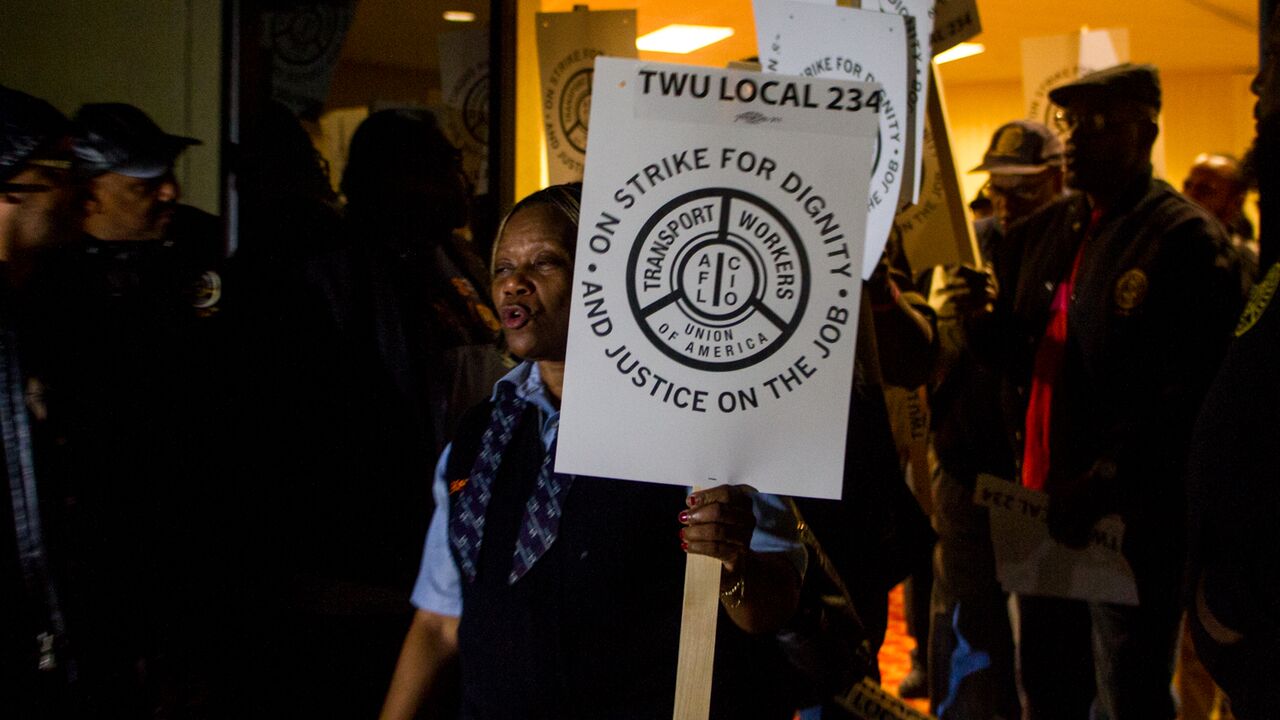New union contract will cost SEPTA $146 million more over 5 years in wages, pensions

Details on Transport Workers Union (TWU) Local 234’s new bargaining agreement with SEPTA were revealed Thursday in the union’s newsletter to membership.
The new contract will cost SEPTA $146 million more in wages and pension benefits over the next five years. It covers the 4,700 City Transit Division workers who operate and maintain the city’s buses, trolleys and subways.
The newsletter suggests that SEPTA’s decision to seek a court injunction to end the strike before Election Day may have forced the union to back down from a longer work stoppage. “Had SEPTA succeeded in obtaining an injunction just seven days into the strike, we could have lost the right to strike now and forever, without the option of binding arbitration, like police and firemen have,” read the newsletter.
Pension reform was the most contentious issue during the strike negotiations, with TWU demanding a retirement plan that resembled management’s. In the end, the negotiators threw the whole thing out and started from scratch. Instead of calculating pension benefits in large part on how much an employee was earning at the time of retirement, union pensions will be based entirely on how long an employee worked for SEPTA. Once a worker qualifies for retirement, their monthly pension benefit will be the number of years worked times $94. Thus, a union employee who retires after 30 years will get $2,820 per month.
The formula’s multiplier will eventually increase from $94 to $100. Employees will make fixed contributions of $50 a week, or $200 a month, to the pension fund. Previously, employees contributed 3.5 percent of wages, excluding overtime. For top union earners, that will actually reduce their contributions, while raising it significantly for newer employees who make less.
The union newsletter put the additional costs of the new pension plan at $64 million over the contract’s five-year term. The authority contributes around $98 million a year into the fund.
The union pension fund faces a $1.2 billion obligation and is currently 62 percent funded.
TWU employees will see wages increase 10.5 percent over the span of the new contract. That will add $82 million to SEPTA’s labor costs over the same period, bringing SEPTA’s estimated wage expenditures for TWU employees to $1.7 billion over the next five years. Wages will increase 1 percent in the contract’s first year, 1 percent in year two, 2 percent in year three, 3 percent in year four and 3.5 percent in its final year.
On health care, contributions will increase incrementally from 1 percent of wages to 2.5 percent by December 2019. For the average TWU employee, that will mean medical insurance costs will go from $46 per month to $115. Union employees will also pay slightly more in co-pays, especially for visits to the emergency room, which apparently some employees relied on for primary care. “With Urgent Care facilities all over (a copayment of $24), using the emergency room as your personal doctor makes no sense and it is killing us at the bargaining table, due to the very high cost of emergency room visits,” read the TWU newsletter. [Emphasis TWU’s]
TWU’s newsletter also mentioned some of the non-economic issues that the union repeatedly bleated about during the strike. The newsletter was silent on longer bathroom breaks, the issue that arguably garnered TWU the most public sympathy.
Cashiers, whose jobs are being replaced by SEPTA Key, will be retrained as customer service attendants. Employees who are assaulted on the job or victimized by some other criminal behavior will now get paid for time spent pursuing legal action against the perpetrator.
It will be harder to SEPTA to fire TWU employees whose driver’s licenses are suspended. Previously, an employee was protected for up to six months — meaning they would keep their job if the license suspension lasted less than 180 days. That protection extends to 18 months now, allowing an employee to return to work once their license is restored.
The union won concessions limiting the use of video evidence to discipline workers. Video recordings from SEPTA facilities and vehicles are reviewed by SEPTA following a reported incident. The union accused management of looking at the recordings for periods long before and after the incident to fish for unrelated disciplinary infractions.
More union employees fired by SEPTA will be able to challenge their discharges through arbitration. Previously the union could force arbitration only one out of every three discharges, that number will increase to two out of three.
TWU’s City Transit Division contract will likely be copied by some of SEPTA’s other bargaining units, including suburban transit workers represented by TWU and Sheet Metal, Air Rail & Transportation Workers Local 1594.
Union membership will vote on the agreement next Friday, November 18th.
A spokesperson for SEPTA declined to comment on the terms of the contract, saying it was authority policy to not discuss the bargaining agreement’s details until after the union ratifies it.
WHYY is your source for fact-based, in-depth journalism and information. As a nonprofit organization, we rely on financial support from readers like you. Please give today.



